The complete guide to home viewing
Get Screen Gab for everything about the TV shows and streaming movies everyone’s talking about.
You may occasionally receive promotional content from the Los Angeles Times.
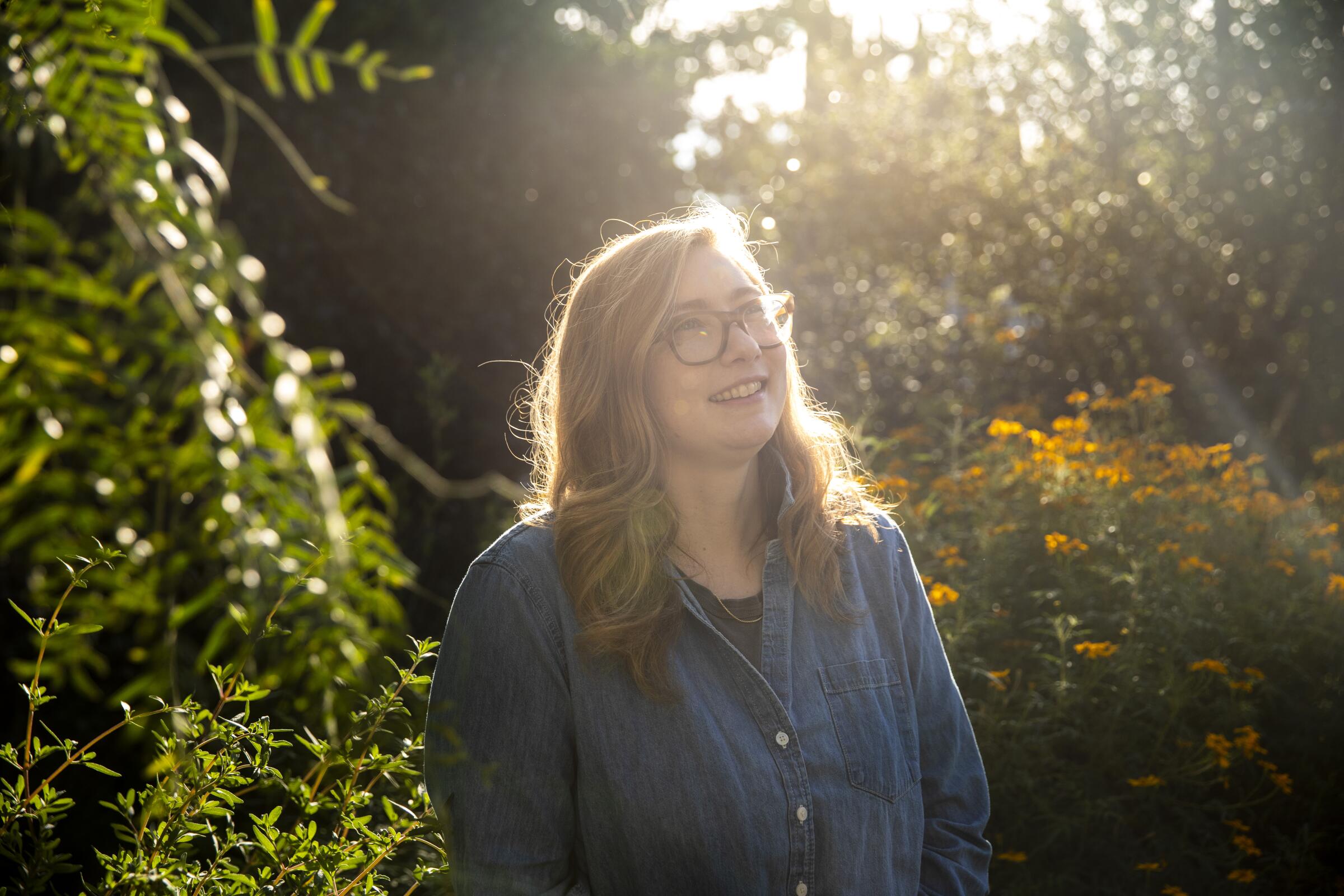
Liz Meriwether, the creator of “New Girl” and “Single Parents,” became fascinated with Elizabeth Holmes in 2019, much like the rest of us. She remembers being drawn in by a Vanity Fair piece that detailed the Silicon Valley wunderkind’s final months at her biotech company, Theranos, which promised to revolutionize blood testing but was ultimately consumed by fraud allegations. Intrigued by the dramatic story, she also listened to the ABC News podcast “The Dropout,” which detailed Holmes’ rise and fall.
“I felt a lot of the similarities in my life with her,” Meriwether says. “We’re similar in age, we have the same name, and just that experience of being young and female in a position of power quickly.”
For those who need a refresher: In 2004, at 20, Holmes dropped out of Stanford University to launch the startup. At its peak in 2014, the company was valued at over $9 billion and Holmes was a darling of the New Yorker, Forbes and other outlets; by 2015, Holmes, then 31, was named the world’s youngest self-made female billionaire by Forbes. Just months later, the Wall Street Journal exposed shortcomings in Theranos’ technology, setting in motion the company’s, and Holmes’, staggering fall.
Hollywood’s most influential showrunners talk with The Times about how they broke into the business, the shifting TV landscape, their writing process and more.
As Theranos was building momentum — enlisting as board members two former U.S. secretaries of State, George Shultz and Henry Kissinger, and entering a partnership with Walgreens — Meriwether was launching her own dizzying kind of startup: her first TV series, “New Girl” on Fox.
“I felt like I could make sense of choices she made up to a certain point,” Meriwether says. “The idea of being a young woman in power without many role models of other women in power and sort of flailing with that, it felt like something I hadn’t really seen on television before. So that part of the story is something I feel uniquely able to tell just based on my experiences. ... That kind of scared me a little bit. And that made me want to tell this.”
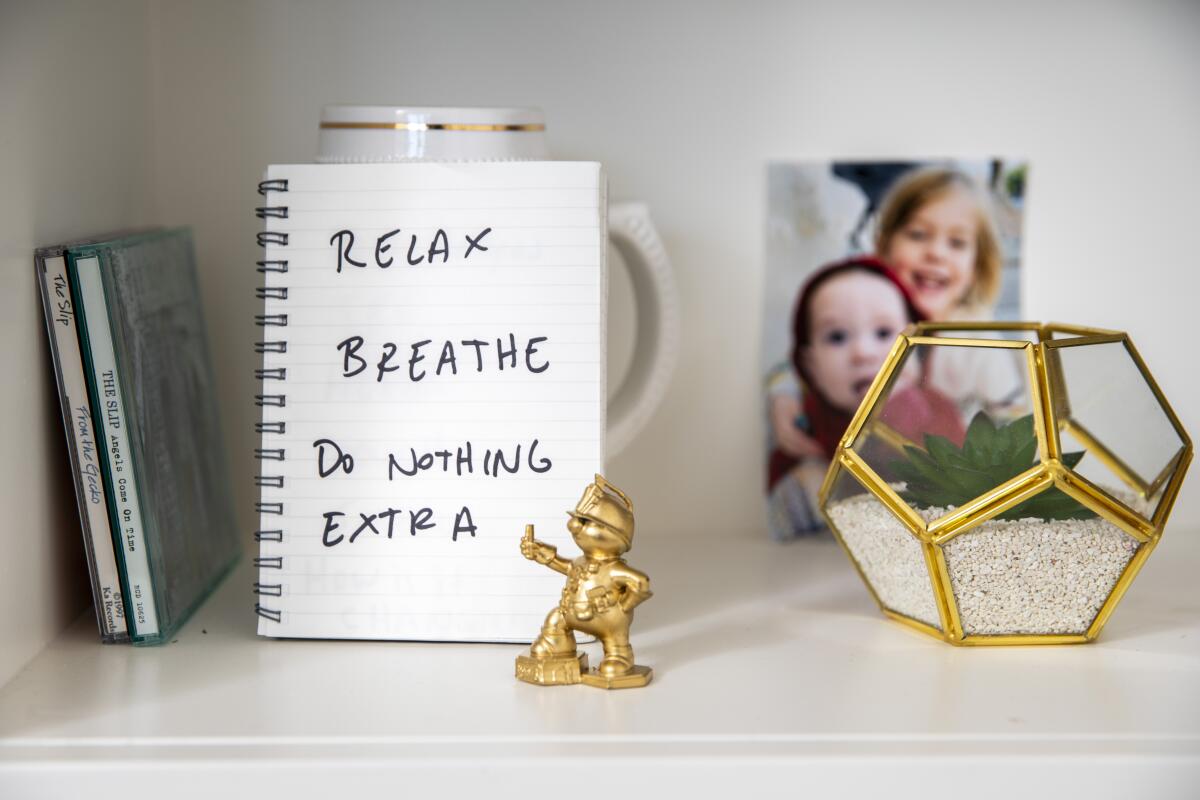
By the time Searchlight Television, the studio that produced the series, reached out to Meriwether about adapting the podcast , Holmes’ story had also been told in a best-selling book and a documentary. “What about this story needs to be told again?” Meriwether wondered.
“When I dug deeper, and when I looked at the story from all the angles that it had been told, what I realized is that there hadn’t really been a version of it that tried to get inside of her mind, tried to get inside of her point of view. That became my North Star for this project: How do we tell this story from her point of view as much as we can? I remember going into the pitch at Searchlight and feeling like I didn’t even know how connected to the story I was and then the more I started talking about it, the more I noticed myself outside of my body — like, ‘Oh, I am really emotionally involved in this.’”
Three years later, “The Dropout” is here. The eight-episode limited series, starring Amanda Seyfried as Holmes, premieres Thursday on Hulu, two months after a jury found Holmes guilty of four counts of fraudulently deceiving investors and right in the middle of two other cautionary tales about Silicon Valley’s hype-driven culture: Showtime’s “SuperPumped: The Battle for Uber” and AppleTV+’s “WeCrashed,” about WeWork.
From her home in Los Angeles, Meriwether spoke to The Times over Zoom about finding “The Dropout’s” tone, shooting the series as Holmes’ trial began, and adjusting her previously unsustainable relationship to work. (Reporter’s note: There was no purple sleeping bag in sight, but her adorable almost-4-year-old daughter dropped in for a bit of gymnastics talk.)
From studying depositions and speaking to farm animals to perfecting the position of her tongue, Seyfried explains how she nailed Holmes’ baritone.
Meriwether and her team had an abundance of research to draw from when crafting “The Dropout” — her first experience building a story around true events and a real person. In the early stages, she felt she was following in the footsteps of her father, Heath J. Meriwether, a retired journalist and former publisher of the Detroit Free Press.
My dad is a journalist and I’ve always had this enormous amount of respect for journalism. I felt like this was, in some ways, my chance to be a journalist. As a writers room, we interviewed some people involved and we had the podcast and its team — [host] Rebecca Jarvis and [producers] Taylor Dunn and Victoria Thompson — as resources, so we could get a lot of the factual information. There’s been so much reporting about Elizabeth that there were just a lot of things go through. At a certain point, I had to put it all down and start focusing on the story and finding the emotional truth. I think you do kind of have to put aside the facts for a second and figure out what the emotional story is that you want to tell in each episode. It wasn’t easy because while we were making it, there were more facts that came out because the trial was going on.
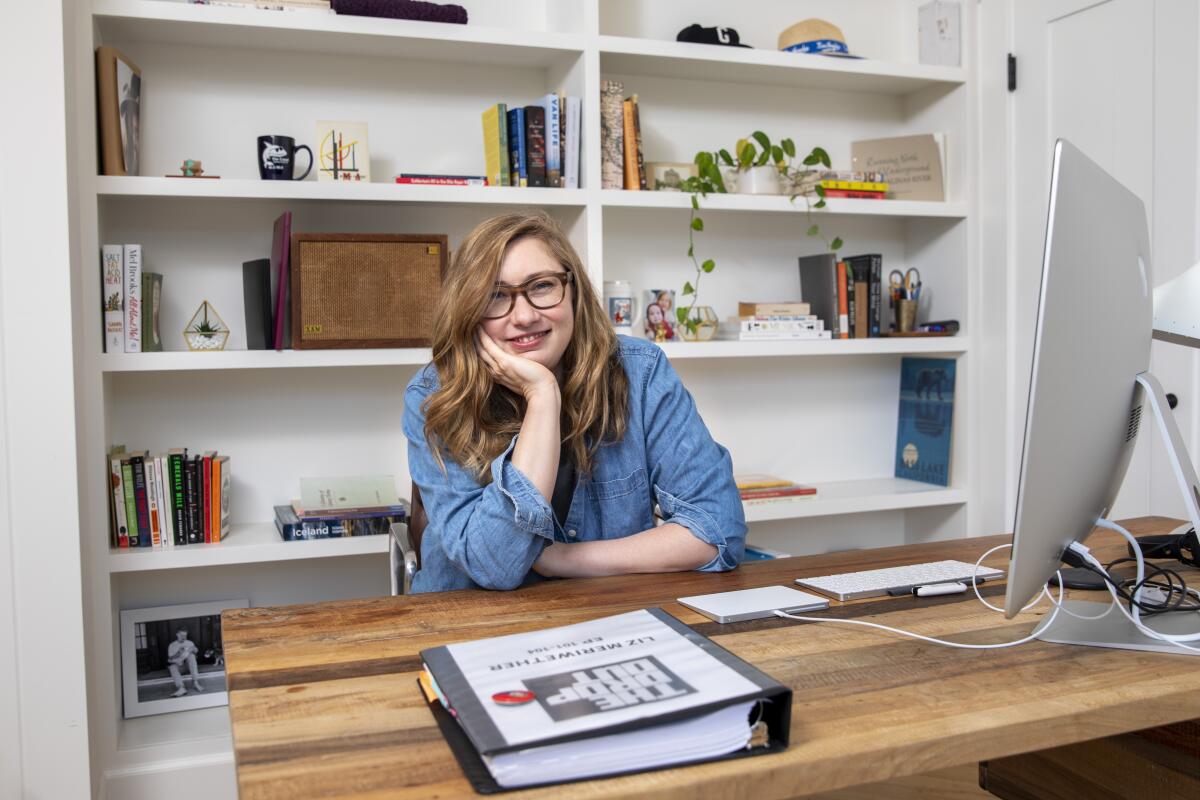
Holmes’ fraud trial began last September and stretched for four months, encountering delays over technological issues, juror travel, a water main break, Holmes’ pregnancy and a surge in coronavirus cases in Northern California. The Hulu series, which experienced its own delays due to COVID, was still filming as the trial began, leading to a frustrating creative situation for Meriwether.
It was just so hard to kind of be at a certain point like, “We just can’t. We just don’t have time” or “We’ve already shot that.” And there’s a thing in their texts [between Holmes and her former romantic and business partner Ramesh “Sunny” Balwani] that came out that was a quick mention of them taking care of a baby bird together. And as a dramatist — I don’t usually call myself that — I was like, “Oh my God, this is an amazing detail. This could be an amazing scene.” And I wrote it and I called our producer. He pulled together the props master, the VFX people, asking, like, “How can we do that? How can we pull that together quickly?” We finally just realized it would have been too crazy and expensive. And then I was like, “What if there’s a baby bird puppet?!” And he, very rightly, was like, “Let’s not do baby bird puppets.” And I think it’s better for everybody. There were things like that, where if I had known them early on I probably would have written it in into the back half of the season. But I know that baby bird scene exists, and I have it on my computer.
Meriwether’s work in TV and film has mostly been in the comedy space, gifting us lines like: “My first crush was on a Batman cake, but my first sexual feelings were about teenage Simba.” In addition to creating the series “New Girl,” “Bless This Mess” and “Single Parents,” she wrote the screenplay for “No Strings Attached,” a romantic comedy starring Natalie Portman and Ashton Kutcher. For “The Dropout,” the tropes of prestige drama couldn’t capture the bizarre and absurd details that provoked the public’s acute fascination with the case.
I think Searchlight in hiring me was also like: “What is the tone of this series?” I’m very grateful that they took that leap of faith. I mean, it was very important to me that it never feel like we were mocking her, that this was a satire, that this was a sketch. At the same time, the story has an enormous amount of absurdity to it and there’s some very strong characters, some very odd characters. I felt like, if there was a way to emotionally invest in all the characters in a real way and then just play it as real as possible, a lot of the absurdity would just come through naturally — that was my thing that I told myself every day. There are definitely moments — ugh, I got a note from Hulu where they said something was goofy. After making a sitcom for eight years, I have been known to dip my toe into the goofy water. I don’t remember what scene they were referring to, I just remember them using that word. And I remember it, like, struck me to my heart.
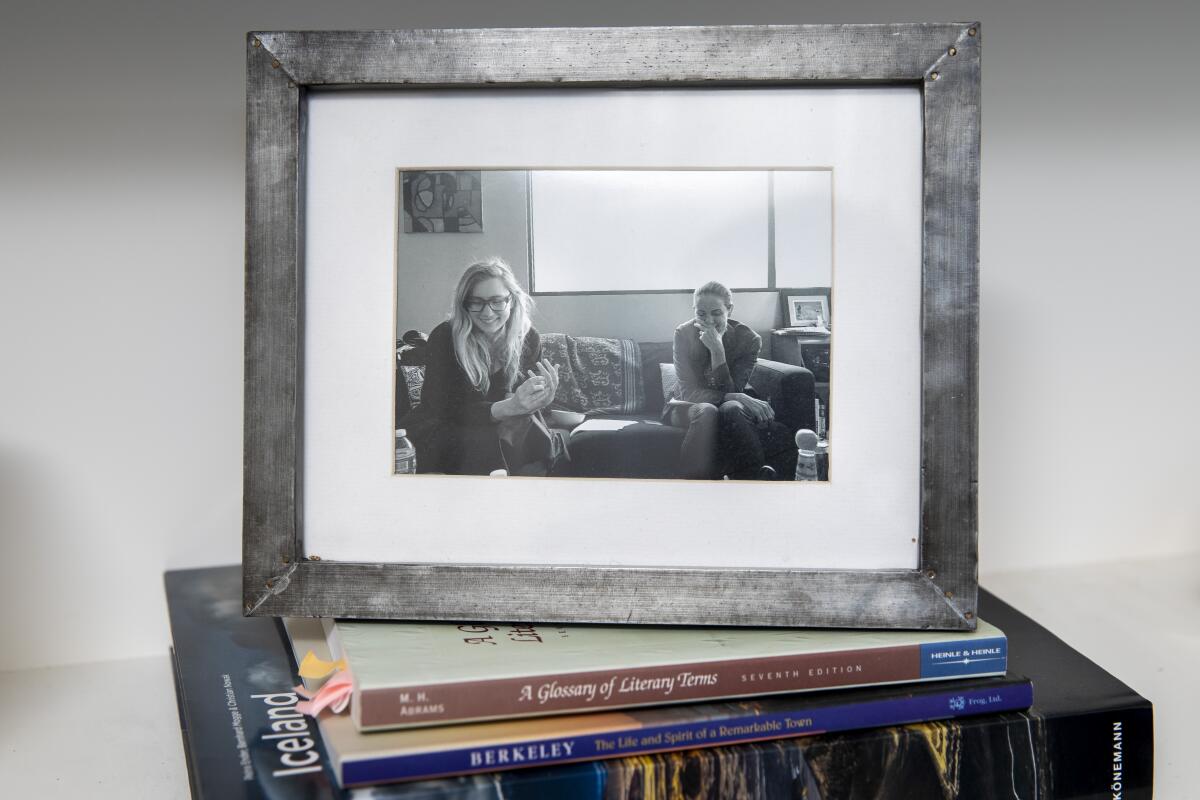
Like other period-specific stories on TV of late, a scene-stealing character from “The Dropout” is the soundtrack, which captures the early aughts through an eclectic assortment of music from the decade and earlier, including Len‘s “Steal My Sunshine,” Justin Timberlake’s “Rock Your Body,” Yeah Yeah Yeahs “Y Control,” Missy Elliott’s “We Run This” and Alabama’s “I’m in a Hurry (And Don’t Know Why).” Meriwether knew early on she wanted the music choices to be a notable driver of the action.
The MC Hammer moment, in real life, was “U Can’t Touch This,” but we made it “2 Legit 2 Quit” because we felt there were more thematic similarities to that song lyrically. Music was a really big part of it for me. I hear 2000 and it doesn’t seem like that far in the past. But then you’re like, “Oh, my God, so much in the world has changed.” That was really fascinating to me and I decided early on to use music as a way to highlight that. What I needed to do is to get people to be emotionally and spiritually in the year that we were in as quickly as possible, so that I was like, “OK, music will really be a help in that.” It was maybe the most fun part of the show for me.
Another big part of the reason I went to music in this show was because the information I had was that specifically that song “I’m in a Hurry” was in her yearbook in high school as her favorite song. As soon as I listened to it, I was like, “Oh, that’s what this whole thing is about.” I started there. And then the other piece of information was when Ana Arriola [whom Holmes hired as Theranos’ chief design architect], in the podcast, talks about seeing her [Holmes] in the morning in her car dancing to hip-hop, thinking that nobody could see her — that really stood out to me as, “Oh, that’s a huge part of who she is, or at least was in that moment in time.” That started me down those those paths. I mean, one of the things she did after Theranos collapsed was go to Burning Man, so ...
The complete guide to home viewing
Get Screen Gab for everything about the TV shows and streaming movies everyone’s talking about.
You may occasionally receive promotional content from the Los Angeles Times.
“New Girl” was the first TV show Meriwether created. While she was the unique voice behind the series, more seasoned TV writers Brett Baer and Dave Finkel, both from “30 Rock,” were tapped as co-showrunners ahead of its launch. But that didn’t lessen Meriwether’s commitment to her work — a purple sleeping bag she kept in her office for late-night work binges received attention in several writeups on her. By the show’s third season, and with some urging from Dana Walden, then the chief executive and chairman of the Fox Television Group, Meriwether joined Baer and Finkel as a co-showrunner.
I think the week that the pilot was picked up was the week that “No Strings Attached” came out. I just kind came off of this experience of making a movie, which was based on the first screenplay that I’d written and that was a years-long process because I was pretty involved in producing it too. I had never been in a writers room before and I never, obviously, show-ran anything. I just got thrown in the deep end with it. And I was single, I was 29, I was more than willing to sleep in the office and work all night. I thought that’s what you did. I thought that’s how it worked. And then, after three years of it, I realized it’s not sustainable, and then I had to rethink everything about how I worked and tried to create more balance throughout the process for everybody involved. For better or worse, I think those 23-, 24-, 25-episode network seasons will force you to examine the process and try to create sustainability within that. Whereas I think some of these shorter shows, I think you can get away with being all-in, all the time. A thing that I think is important is I don’t actually think it yields better work. It just took me a while to realize that.
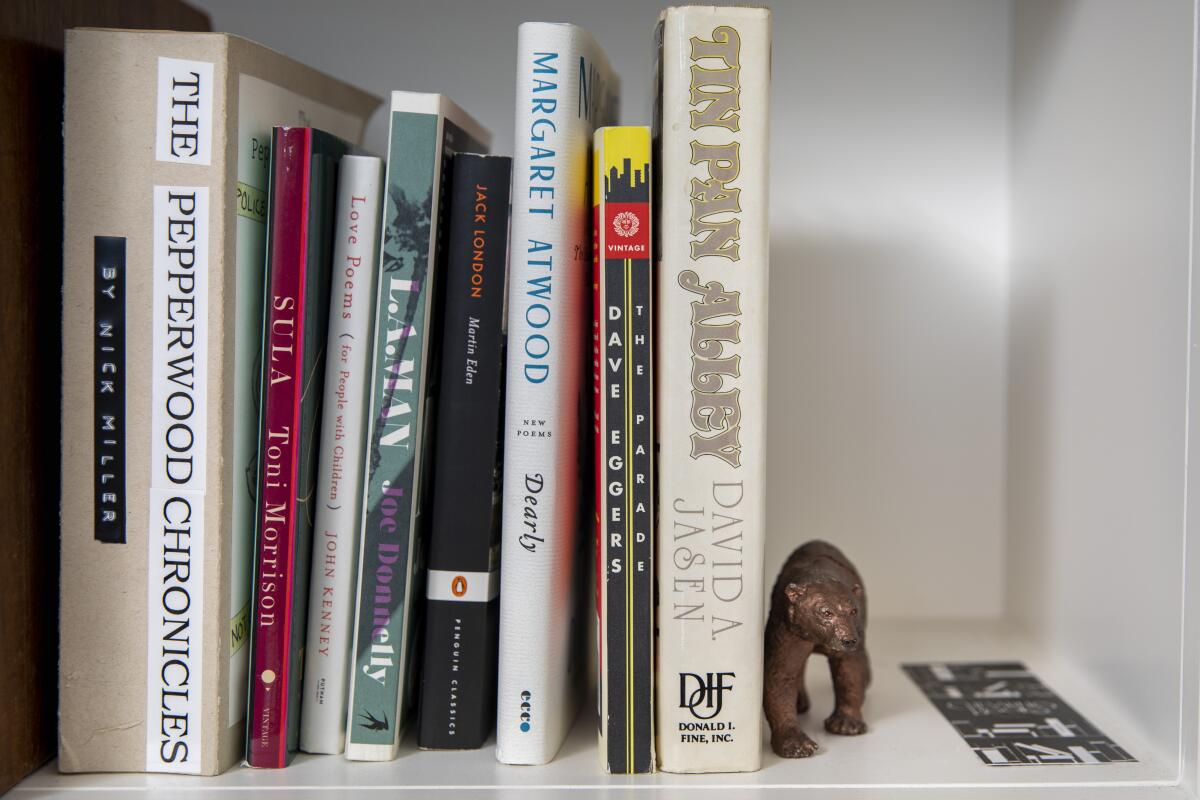
A network schedule is really challenging no matter who you are or where you are in your career. I think being a young woman who didn’t have experience in a writers room, I just couldn’t find my footing. And so I think my reaction to that was to be like, “Thank you for all your work,” and then take it all in and sort of try to do it all myself without actually communicating what I wanted or without developing these relationships that then grow and flourish and, actually, you end up not only being helped by other people, but they become a huge part of the creative process. I just had no experience of that. It’s always hard. It’s hard to walk into a room of mostly men as a young woman and be the person telling them what to do — it’s tricky. And I had a moment where I, at some point, decided to just stop trying to be somebody that I’m not.
A good friend of mine from college, who was in business school when “New Girl” started, when I was describing my job to her, she was like, “That’s why we’re in business school — to learn how to do the job that you’re describing.” And I was like, “Yeah, my training has been being in some theater rehearsal.” The level of communication — that was the thing I had to get used to, just constantly letting people know what was going on in my head and constantly getting feedback. Because when you don’t communicate, that’s when everything crumbles. People don’t know what you want so they start guessing and then you’re frustrated with them for guessing the wrong thing. Then they’re like, “But you never told me so!” It’s constant communication, that was definitely a surprise to me. And then also the pace of network television is brutal. I’m just invested in everything — that’s a nice way of saying perfectionist — but I really care about all of it, so it’s hard for me to step back and stop at a certain point, but that was what the job was too.
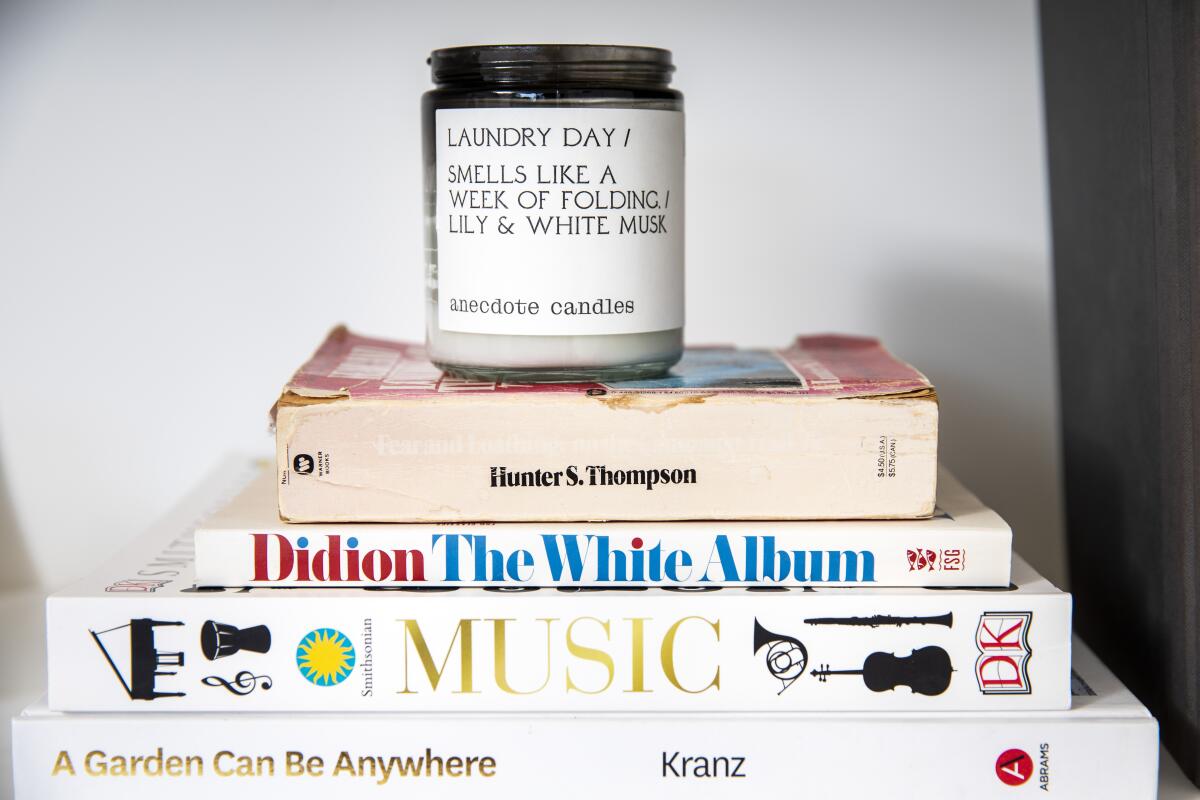
Good ideas can come from anywhere. And to make TV, it doesn’t hurt to study other creative works in the same wheelhouse from time to time. Meriwether turned to NBC’s long-running sitcom “Cheers” for inspiration to prepare for her TV debut with “New Girl.” To get into a creatively conducive headspace to navigate a world of blood droplets, nanotainers and the faulty promise of a healthcare revolution, Meriwether looked to “Fargo” and NPR’s “How I Built This.”
I always like to watch things as I’m starting a project. I like to immerse myself in the world or the tone that I’m trying to explore. I watched “Cheers” before “New Girl.” I remember just going back and watching every sitcom I could to see how they did it. I remember watching “Everybody Loves Raymond” and being almost in tears. The structure of those stories is so well done. For “Bless This Mess,” I bought a ton of farm books and I spoke to a lot of farmers, and I watched “Green Acres.” I watched some “The Money Pit.” I always loved “The Thin Man” because I love that the marriage in the movie is so incredible.
For “The Dropout,” I was talking to scientists, I was interviewing people. I love the show “Fargo” — I love that tone of comedy and cruelty and fear. I also listened to the NPR podcast “How I Built This,” because so much of this show is trying to get into the mind of an entrepreneur. Business — that part of it is so foreign to me. I’ve never in my life wanted to start a business. I wanted to know: What does that feel like? Who are the people that want to do that? And those are all the success stories, so it’s interesting because the beginning of a lot of startups is really similar to where Theranos began. I was interested in trying to understand where things go wrong.
The complete guide to home viewing
Get Screen Gab for everything about the TV shows and streaming movies everyone’s talking about.
You may occasionally receive promotional content from the Los Angeles Times.